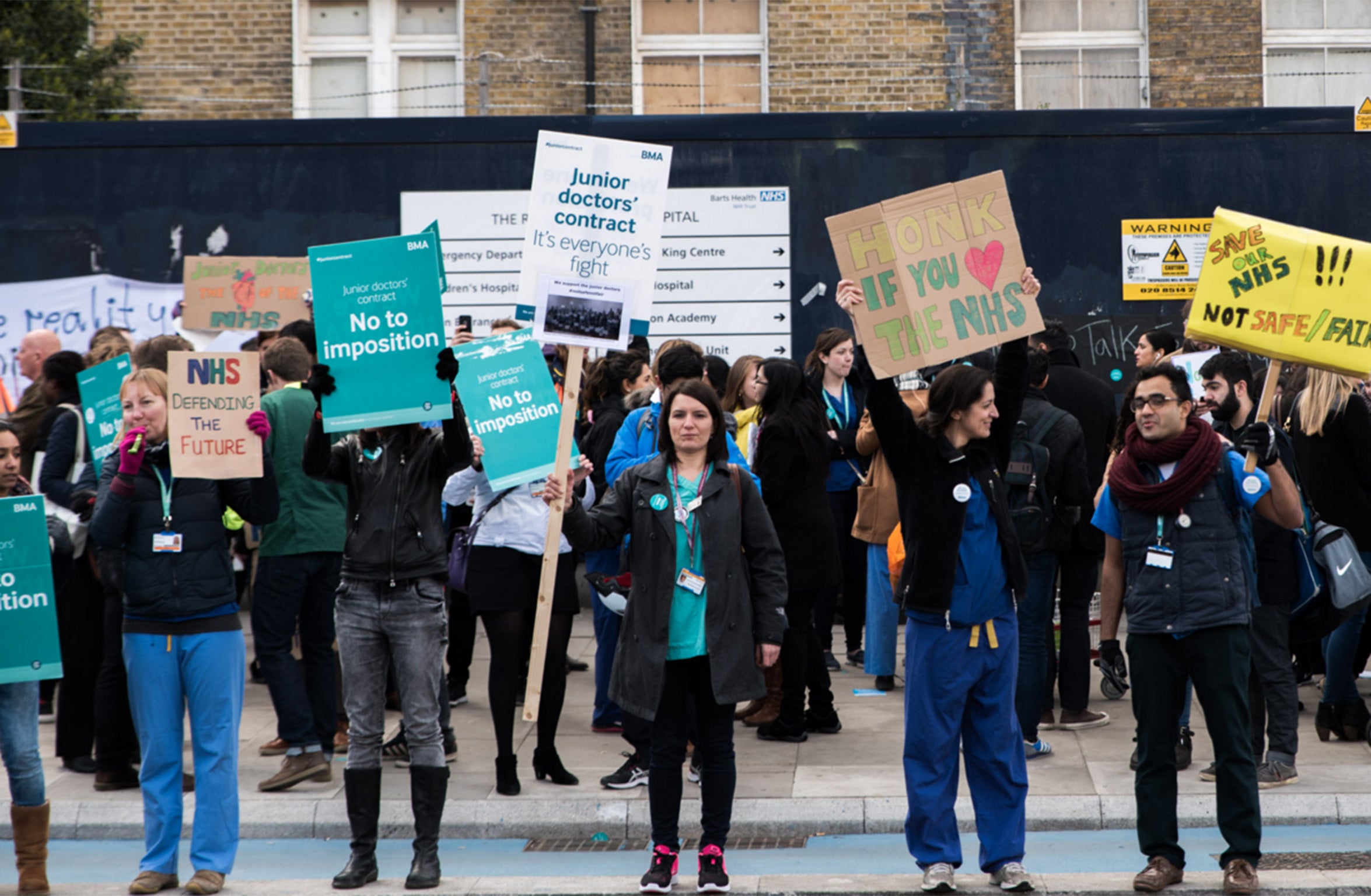It sounds great that Hunt has agreed not to impose his junior doctors' contract after all - but the truth is a bit different
Hunt has agreed to discuss the junior doctors’ contract with the BMA, but with 90 per cent of issues off the cards, what is there to talk about?


Your support helps us to tell the story
From reproductive rights to climate change to Big Tech, The Independent is on the ground when the story is developing. Whether it's investigating the financials of Elon Musk's pro-Trump PAC or producing our latest documentary, 'The A Word', which shines a light on the American women fighting for reproductive rights, we know how important it is to parse out the facts from the messaging.
At such a critical moment in US history, we need reporters on the ground. Your donation allows us to keep sending journalists to speak to both sides of the story.
The Independent is trusted by Americans across the entire political spectrum. And unlike many other quality news outlets, we choose not to lock Americans out of our reporting and analysis with paywalls. We believe quality journalism should be available to everyone, paid for by those who can afford it.
Your support makes all the difference.A glint of light. A week’s grace. It may be a long shot, but it’s potentially priceless. Finally, belatedly, after an inspired intervention from all 22 medical Royal Colleges, the government and BMA are getting back around the table.
The Colleges’ pitch was ingeniously simple: “a five day pause without ‘ifs, buts, and maybes’”. In other words, drop all preconditions and give words a chance to defuse the sour stalemate between state and union. How could either side possibly refuse? President of the Royal College of Physicians, Simon Wessely, adroitly ratcheted up the psychological pressure, saying: “we need both sides to put aside their anger, pride and personal emotions”. Because, let’s face it, no one wants to be seen as the flawed individual who cannot prevent their own foibles and weaknesses from overwhelming the big picture.
As someone who’s just spent two nights sleeping rough outside the Department of Health – a frankly desperate attempt to persuade my Secretary of State to choose talks, not strikes - I’m feeling particularly relieved right now. But for all of us, strikes have been an act of desperation, a last resort from a profession who’s been backed into the tightest of corners. We’ve longed for talks above the gut-wrenching act of withdrawing care from our patients. And now, mercifully, we have them. But will they cut the mustard?
For five days of discussion uninhibited by preconditions of any kind, the government’s response is disconcertingly didactic. Specifically, Jeremy Hunt has stipulated that the “90 per cent of the issues (already) agreed” must not be revisited. Nor must the premise that the new contract delivering the ‘truly seven-day NHS’ will do so while maintaining strict “cost neutrality”. He even requires written agreement from the BMA that the “single biggest area of disagreement” – Saturday pay, in his opinion – will be negotiated substantively. Talks may be the only way out - but talk, as we know, can also be cheap.
Patter has dominated this dispute. Until now, the government’s spin doctors have played a blinder, brilliantly selling the public a ‘pay dispute’ that hinges on the self-serving matter of our precious ‘Saturday overtime’. How could doctors be so selfish, so irresponsible, to desert our patients in pursuit of more beer money?
Alas for Jeremy Hunt, the credibility of that government narrative was derailed last week by the simple, sincere, heartfelt testimony from junior doctors everywhere. The message from the picket line needed no gilding. Junior doctors on the overstretched, understaffed NHS frontline have simply reached the end of their tether. We’re tired, we’re demoralised, we have nothing more to give. And if we are stretched more thinly across seven days, not five, we can only endanger our patients.
If Jeremy Hunt really believes he can resolve this dispute by shoe-horning ‘precondition free’ negotiations into the single-issue sideshow of Saturday pay, he’s less a Secretary of State than a somnambulist. Has he actually not noticed the worst ever recruitment statistics for junior doctors the NHS has ever seen? Was he playing on his smartphone when someone mentioned over half of young A&E trainees quit after two years in post?
The real world, Mr Hunt, is this: junior doctors will not accept a contract that says nights begin at 2am, that a toothless excuse of a ‘Guardian’ protects us from being forced to work excessive hours, that every one of our contractual terms and conditions can be changed at a whim by our employer and – above all else – that seven day services can be safely delivered for the price of five. My only precondition is no preconditions. Get it all out there, for all our sakes, please.
Join our commenting forum
Join thought-provoking conversations, follow other Independent readers and see their replies
Comments